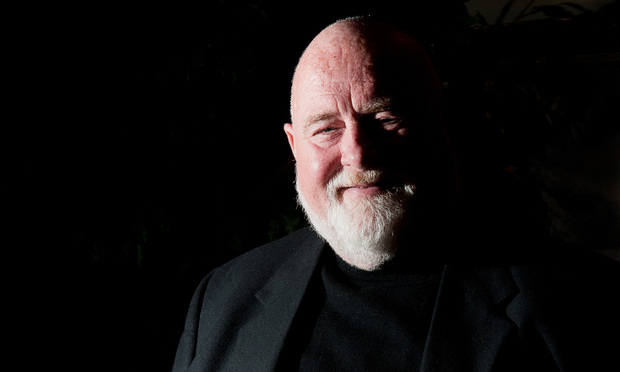'Reptile' Co-Author Don Keenan Says Big Verdicts Reflect Justice
Keenan, co-author with David Ball of "Reptile: The 2009 Manual of the Plaintiff's Revolution," said a shift in the way lawyers try cases has led to larger verdicts and 'what justice in this country is all about."
May 14, 2020 at 01:02 PM
5 minute read
 Don Charles Keenan, of The Keenan Law Firm, Atlanta. (Photo: Rebecca Breyer/ALM)
Don Charles Keenan, of The Keenan Law Firm, Atlanta. (Photo: Rebecca Breyer/ALM)
After more than a decade of training lawyers in the art of persuading jurors that tortfeasors' actions are more than isolated incidents, and instead reflect systemic failures that pose a threat to the public at large, attorney Don Keenan—co-progenitor of the "Reptile theory" of plaintiff's advocacy—shrugs aside accusations that his techniques are unscrupulous and trample the rules of evidence.
But the principal of Atlanta's Keenan Law Firm cheerfully agrees with defense lawyers that his techniques have helped spur the wave of "nuclear verdicts" that began several years ago.
"I think their observation that the paradigm shifted about 10 yeas ago, the very time we came out with the Reptile, is accurate," said the co-author, with litigation strategist David Ball, of "Reptile: The 2009 Manual of the Plaintiff's Revolution."
The theory relies on appealing to jurors' "reptilian brain"—the portion of the human brain that evolved first and where survival instincts kick in whenever a threat is perceived.
Related story: Stemming the tide of social inflation
By convincing a jury that their verdict can help alleviate a threat to the public, plaintiffs attorneys are able to leverage that fear to overcome appeals to logic and reason offered up by defense lawyers.
"It's undeniable that the verdicts have gone through the roof," said Keenan. "But in my humble opinion, the roof was too short for a number of years."
"For example, I tried obstetric-neonatal cases for a number of years," he said. "They had big life-care plans—forget the pain and suffering, mental anguish, loss of income. You could get an eight-figure verdict with just a life-care plan. I never thought they were adequate.
"Now we're getting all the damages," said Keenan. "The cases haven't gotten any better; the lawyers have gotten far better at being able to persuade the jury what justice in this country is all about."
Defense lawyers, initially caught flat-footed by the new strategy, have fought back by urging trial judges to bar Reptile-centered arguments and evidence, such as questions about safety or health standards not directly related to the incident at hand, with varying degrees of success.
"There has been an avalanche of attack on every single aspect of the Reptile. They call it evil mind-control," said Keenan. "Plenty of trial judges have been bamboozled into making anti-Reptile rulings, in fact we've got a whole website of these orders and how they turned out. We've been tracking it like Davy Crockett," Keenan said.
"Yet there hasn't been any appellate decision that eroded any of it," he said. "Every bit of this is grounded on rock solid, black letter law."
Keenan said it took him decades to figure out that the way he and the rest of the plaintiffs bar were trying cases was largely off target.
"For the first 30 years of my career I tried the case as an event: you took the baby's leg off, the truck driver was speeding … the law has never said it's about the event. It's about foreseeability: whether the defendant knew or should have known there was a high degree of danger," he said.
"The paradigm shift was: 'Don't try your case as an event'; that shortsights the case. You try the case as a systemic failure: The truck driver didn't parachute out of the sky. Somebody trained him, somebody hired him."
"Foreseeability is the backbone of tort law," said Keenan. "It was initially held as being a pro-defense doctrine: 'We're not going to be held liable for something that was unforeseeable.'"
There has been a "cataclysmic shift," he said. "Defense lawyers are now are now saying policies and procedures being introduced is like some grand Chinese conspiracy."
The "vehicle" that powers the success of the technique is "the simplicity of it all," he said.
"If you say 'if the danger is foreseeable, it's preventable,' 10% of the Bubbas out there will say, 'That's right.' Whether you're a pharmaceutical company, an apartment complex, a hospital, the question is, 'where did the system fail?'"
"That turns it, frankly, into a community case, because if Bubba's sitting there and you've convinced Bubba that the hospital system failed, Bubba's going to say, 'If I don't fix this, its going to happen again.' You can't tell a jury to defy their common sense."
Read more: 'The Whites of Their Eyes': Lawyers Say Litigating With Insurers Becomes a Game of Chicken
'Reptile' Co-Author Don Keenan Says Big Verdicts Reflect Justice
These Lawyers Won Some of Biggest Verdicts and Settlements in the Nation. What's the Magic Sauce?
Incoming! Insurance Defense Lawyers Talk 'Nuclear Verdicts'
This content has been archived. It is available through our partners, LexisNexis® and Bloomberg Law.
To view this content, please continue to their sites.
Not a Lexis Subscriber?
Subscribe Now
Not a Bloomberg Law Subscriber?
Subscribe Now
NOT FOR REPRINT
© 2025 ALM Global, LLC, All Rights Reserved. Request academic re-use from www.copyright.com. All other uses, submit a request to [email protected]. For more information visit Asset & Logo Licensing.
You Might Like
View All
12-Partner Team 'Surprises' Atlanta Firm’s Leaders With Exit to Launch New Reed Smith Office
4 minute read
After Breakaway From FisherBroyles, Pierson Ferdinand Bills $75M in First Year
5 minute read
On the Move: Freeman Mathis & Gary Adds Florida Partners, Employment Pro Joins Jackson Lewis
6 minute read
Veteran Litigators Move From Sidley Austin to Alston & Bird's New Chicago Office
3 minute readTrending Stories
- 1Cleary Nabs Public Company Advisory Practice Head From Orrick in San Francisco
- 2New York Environmental Legislation in 2024
- 3Cravath Hires Paul Weiss Antitrust Co-Chair
- 4Contract Technology Provider LegalOn Launches AI-powered Playbook Tool
- 5Court of Appeals Provides Comfort to Land Use Litigants Through the Relation Back Doctrine
Who Got The Work
J. Brugh Lower of Gibbons has entered an appearance for industrial equipment supplier Devco Corporation in a pending trademark infringement lawsuit. The suit, accusing the defendant of selling knock-off Graco products, was filed Dec. 18 in New Jersey District Court by Rivkin Radler on behalf of Graco Inc. and Graco Minnesota. The case, assigned to U.S. District Judge Zahid N. Quraishi, is 3:24-cv-11294, Graco Inc. et al v. Devco Corporation.
Who Got The Work
Rebecca Maller-Stein and Kent A. Yalowitz of Arnold & Porter Kaye Scholer have entered their appearances for Hanaco Venture Capital and its executives, Lior Prosor and David Frankel, in a pending securities lawsuit. The action, filed on Dec. 24 in New York Southern District Court by Zell, Aron & Co. on behalf of Goldeneye Advisors, accuses the defendants of negligently and fraudulently managing the plaintiff's $1 million investment. The case, assigned to U.S. District Judge Vernon S. Broderick, is 1:24-cv-09918, Goldeneye Advisors, LLC v. Hanaco Venture Capital, Ltd. et al.
Who Got The Work
Attorneys from A&O Shearman has stepped in as defense counsel for Toronto-Dominion Bank and other defendants in a pending securities class action. The suit, filed Dec. 11 in New York Southern District Court by Bleichmar Fonti & Auld, accuses the defendants of concealing the bank's 'pervasive' deficiencies in regards to its compliance with the Bank Secrecy Act and the quality of its anti-money laundering controls. The case, assigned to U.S. District Judge Arun Subramanian, is 1:24-cv-09445, Gonzalez v. The Toronto-Dominion Bank et al.
Who Got The Work
Crown Castle International, a Pennsylvania company providing shared communications infrastructure, has turned to Luke D. Wolf of Gordon Rees Scully Mansukhani to fend off a pending breach-of-contract lawsuit. The court action, filed Nov. 25 in Michigan Eastern District Court by Hooper Hathaway PC on behalf of The Town Residences LLC, accuses Crown Castle of failing to transfer approximately $30,000 in utility payments from T-Mobile in breach of a roof-top lease and assignment agreement. The case, assigned to U.S. District Judge Susan K. Declercq, is 2:24-cv-13131, The Town Residences LLC v. T-Mobile US, Inc. et al.
Who Got The Work
Wilfred P. Coronato and Daniel M. Schwartz of McCarter & English have stepped in as defense counsel to Electrolux Home Products Inc. in a pending product liability lawsuit. The court action, filed Nov. 26 in New York Eastern District Court by Poulos Lopiccolo PC and Nagel Rice LLP on behalf of David Stern, alleges that the defendant's refrigerators’ drawers and shelving repeatedly break and fall apart within months after purchase. The case, assigned to U.S. District Judge Joan M. Azrack, is 2:24-cv-08204, Stern v. Electrolux Home Products, Inc.
Featured Firms
Law Offices of Gary Martin Hays & Associates, P.C.
(470) 294-1674
Law Offices of Mark E. Salomone
(857) 444-6468
Smith & Hassler
(713) 739-1250






